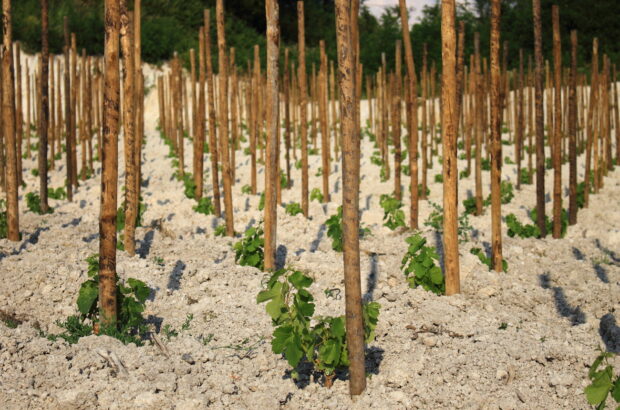Nearly 200 nations sealed an agreement on Wednesday to begin ‘transitioning away from fossil fuels’ in a bid to combat climate change.
However, critics argued that the non-binding pact did not go far enough, as it did not set a specific end date for countries to stop producing oil, natural gas and coal.
The International Wineries for Climate Action (IWCA) – a group that represents 140 wineries, including Torres and Jackson Family Wines – has joined them in denouncing the lack of tangible pledges made to reduce the impact of climate change at the summit.
‘We are deeply concerned at the lack of concrete progress,’ said the group in a statement. ‘We are a collective that works to decarbonise the wine industry, and our mission is seriously compromised by the COP’s inability to stop new oil and gas exploration, and to agree on a date to phase out the use of all fossil fuels.
‘We are disappointed that this year’s COP conclusions lack forcefulness and have in no way advanced the vital move towards detaching the global economy from fossil fuels to achieve a meaningful reduction in GHG emissions.’
World leaders were already under pressure following the decision to host a global climate summit in a petrostate that relies heavily on fossil fuels for its exports and its general economic strength.
The BBC reported that the United Arab Emirates planned to use its role as the host of the climate talks as an opportunity to strike new oil and gas deals.
Simmering tensions erupted this week following the release of a draft agreement, which dropped previous references to the phaseout of fossil fuels.
The European Union called the text ‘fully unacceptable’, and several countries accused Saudi Arabia and other petrostates of thwarting efforts to tackle greenhouse gas emissions (GHGs).
The various parties eventually reached a compromise, which most seemed pleased with, as it drew a standing ovation at the summit’s conclusion on Wednesday.
However, some climate activists were left ruing what might have been. ‘This text is a step forward on our path towards phasing out fossil fuels, but is not the historic decision we hoped for,’ said Andreas Sieber, associate policy director at 350.org.
Tom Evans, policy advisor at E3G, added that the compromise may have helped ‘avoid disaster in Dubai’, but warned ‘it does not avoid disaster for the planet’.
Meanwhile, the IWCA added that this year’s vintage ‘has proved that climate change is our reality’.
It pointed to extremes of deep drought, intense heat and wildfires, and deep freezes in wine-growing regions around the world.
Global wine production has decreased by 7% this year, according to the International Organisation of Vine and Wine (OIV), largely due to the impact of climate change.
‘It is imperative that businesses such as ours, which rely on a stable climate and the quality of our soils, push emissions reduction to the top of the agenda,’ said the IWCA.
‘We urge the COP to agree on an end date for the use of fossil fuels at COP29. If we do not meet the 1.5°C goal, our long-term survival as a business sector is jeopardised, and we will be forced to face significant impacts due to increasingly harmful climate change.’






